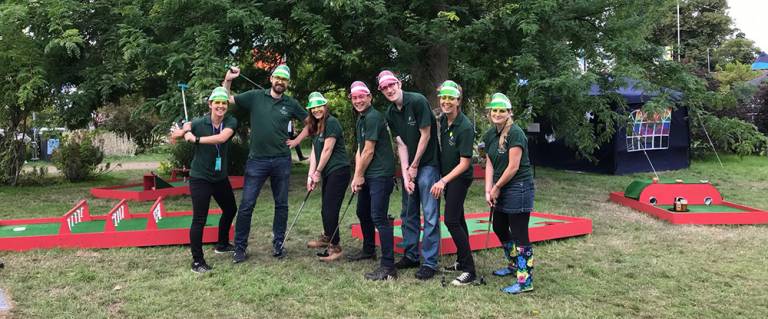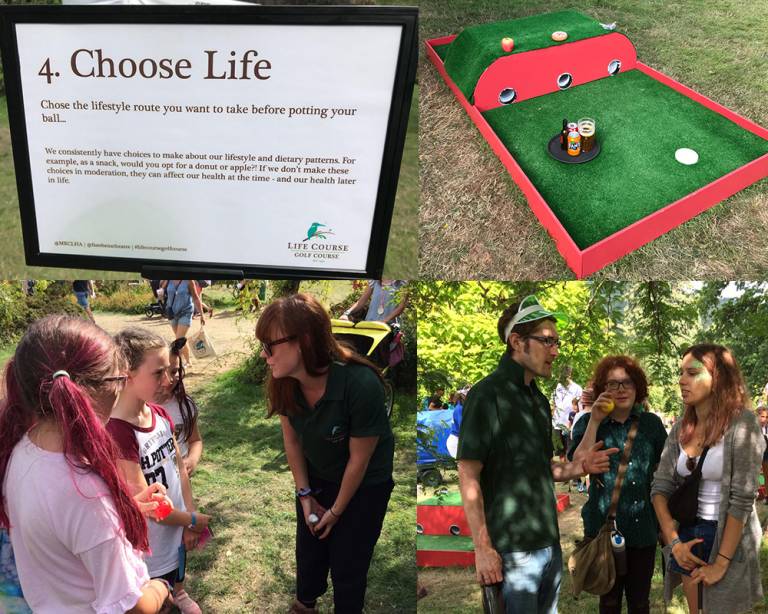UCL researchers bring life course studies into The Green Man Festival
This year, the Green Man festival in the Brecon Beacons, Wales, celebrated the 10th birthday of Einstein’s Garden – an area dedicated to making science and nature an inspiring part of the festival experience. As part of this, with funding from MRC, researchers from UCL partnered with fanSHEN theatre company to create an activity to engage the public with findings from longitudinal life course research. The scientific team was made up of research scientists, clinicians and research nurses from the MRC Unit for Lifelong Health and Ageing at UCL and Centre for Longitudinal Studies; making them well placed to show case the variety of research that occurs from life course studies.
The successful collaboration led to the development of “Life Course golf course”; part crazy golf, part insight into research from longitudinal cohort studies. In this activity, festival goers were recruited into the life course-themed six-hole golf course. Their caddy (research scientists) navigated them through the ‘life course golf course’ by discussing and describing how studying birth cohorts have helped us to understand how early life factors can affect later health outcomes.
 L-R Joanna Blodgett, Dr Mark Rawle, Dr Jane Maddock, Dr Andrew Wong, Dr David Bann, Katrin Hoffmann and Dr Sarah James
L-R Joanna Blodgett, Dr Mark Rawle, Dr Jane Maddock, Dr Andrew Wong, Dr David Bann, Katrin Hoffmann and Dr Sarah James

Each of the holes represented influences across the life that may affect our health. For example, the game started by randomly choosing a ball that made playing easier or harder than others and had a long lasting impact on the game, representing the socio-economics and genetic circumstances we are born into. At another hole, players had to avoid hitting the ball into ‘life event’ bunkers such as moving house, school/work. At some holes, players were ‘penalised’ by wearing ability impairing accessories such as a boxing glove or sunglasses for the duration of the game to represent the long lasting impact that these risk factors may have.
Over 1,500 adults and children successfully progressed through the course. With an audience made up of families, teenagers and adults who wouldn’t normally attend a scientific event, it presented a fantastic opportunity to share about our research in a fun and creative way.

 Close
Close

